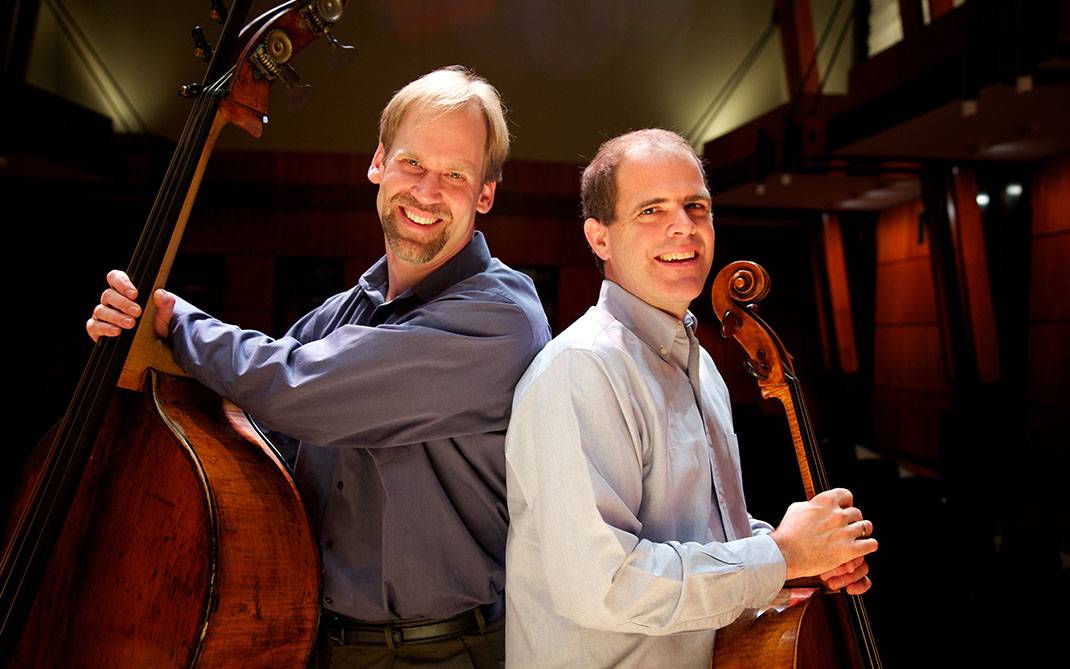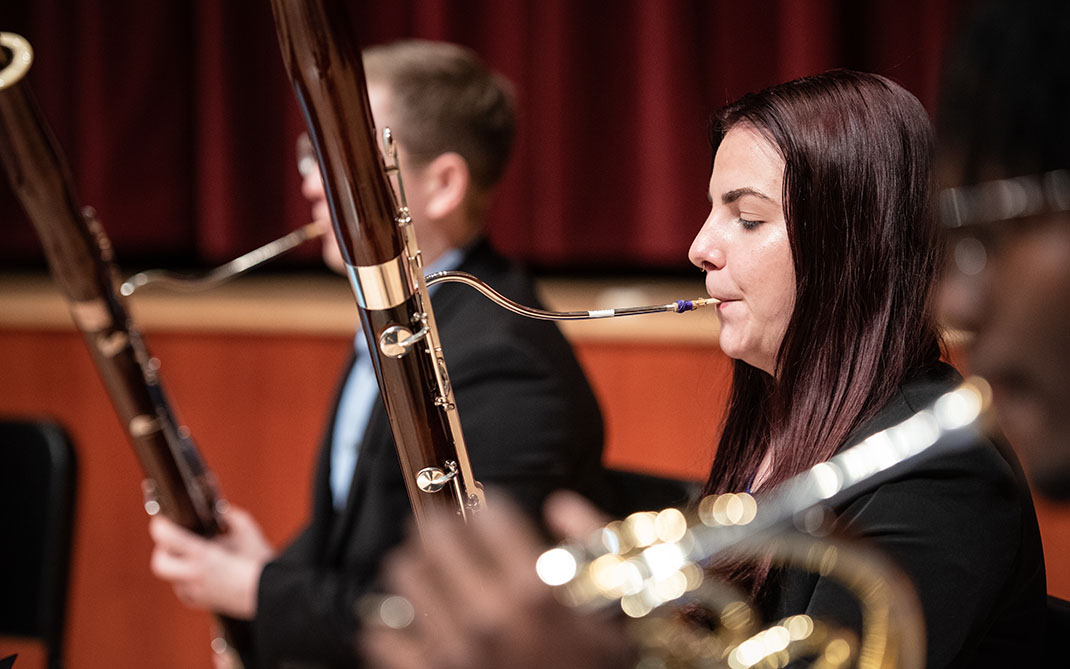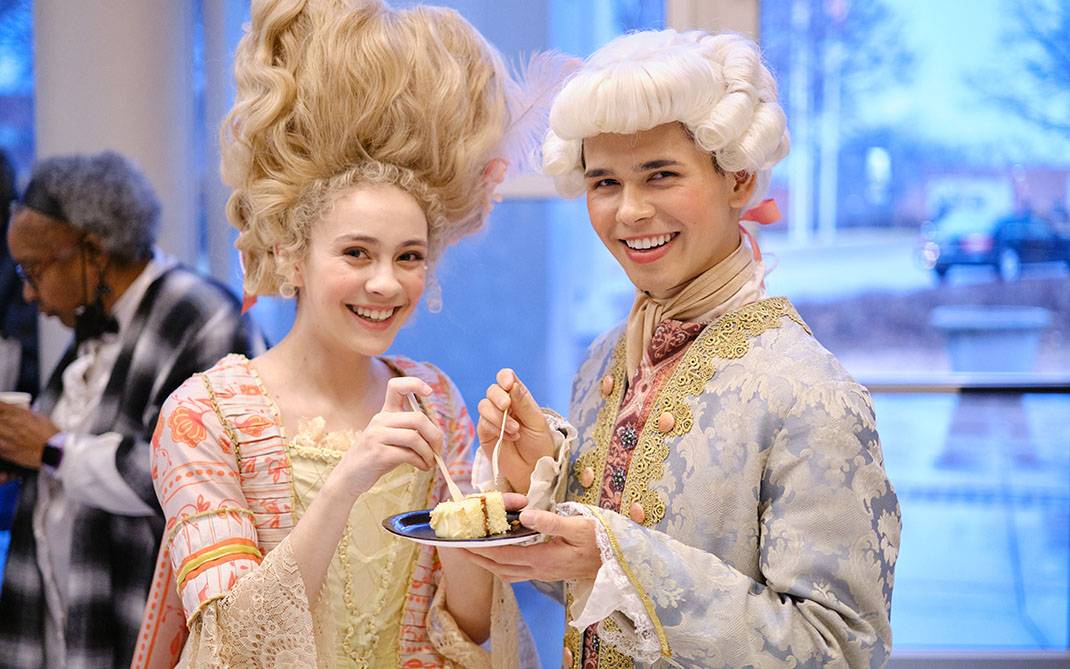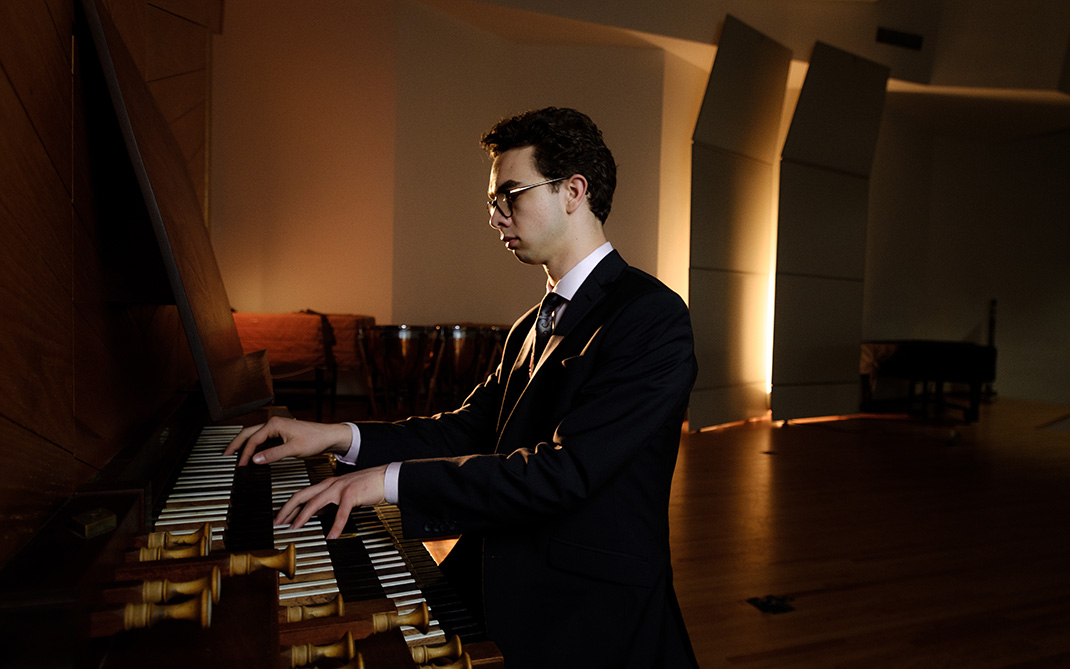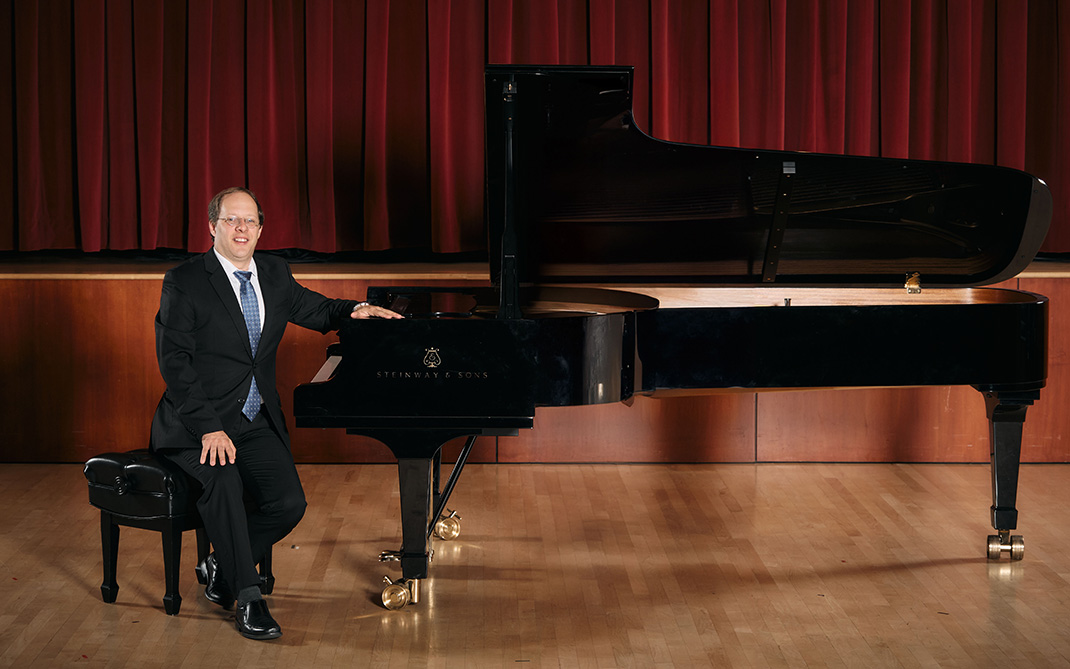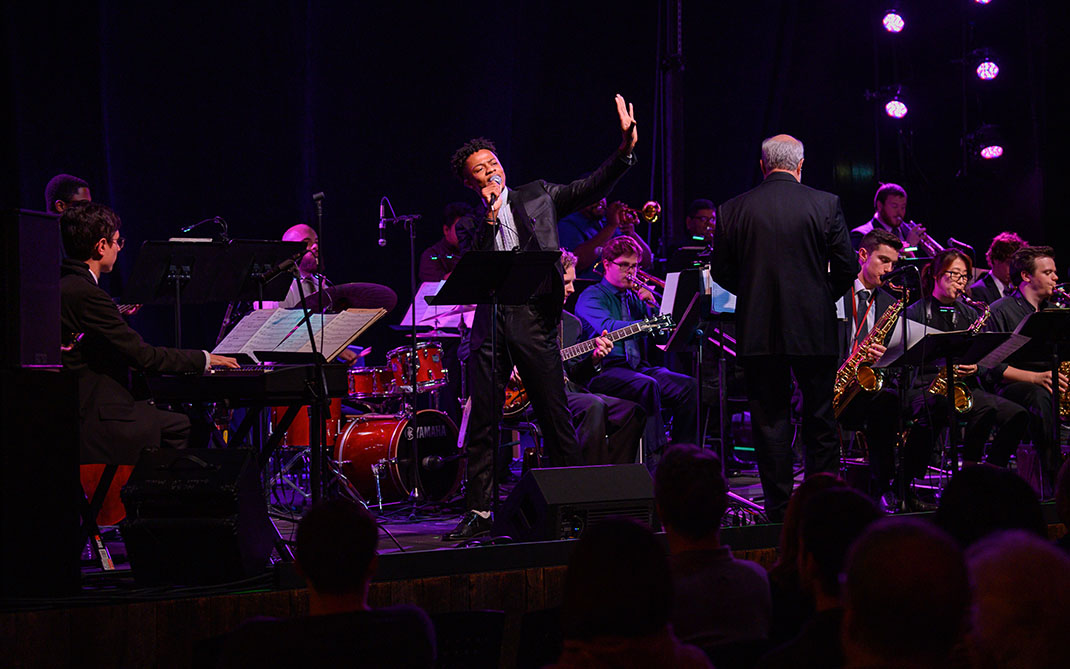Backstage: B. Afeni McNeely Cobham
B. Afeni McNeely Cobham, known as “Dr. MC,” began her tenure this past April as the first associate vice chancellor and vice provost for equity, diversity, inclusion and belonging (EDIB) at UNCSA, bringing decades of higher education experience and a heart for preparing inclusive artists.
Q: You're making history as the first executive dedicated to EDIB at UNCSA. What drew you here?
This is a perfect opportunity to be part of an institution cultivating the next generation of artists because entertainment, for better or worse, profoundly influences our society. It’s a wonderful marriage of my experience and expertise in dealing with race, identity and culture within the context of higher education, where we're asking students to honor tradition and also step outside of themselves to be conscientious about how we are inclusive in the art we deliver and the role we play in the entertainment industry.
Q: You developed a course on hip-hop culture a decade ago. What does it mean to prioritize EDIB in the arts?
There's no greater platform than art to move forward and celebrate the countless ways human identity shows up. From LGBTQ and race to religious identity or neurodiversity, we enter into conversations with diverse lived experiences. Using hip-hop made it easier for students to unpack issues around their favorite artists and gain an appreciation, understanding, empathy and connection to others through art.
Q: The spotlight has been on social justice issues again in recent years. Has this renewed national attention affected how you approach your work?
The current conversation is not new. It seems to have a 20-year cycle, and the attack is brilliant, right? It says, “No, it separates us; it makes us feel guilty.” Nothing is further from the truth. In a society where we bill ourselves as the greatest in the world, why do we still have a shortfall in these areas? James Baldwin said, “The artist’s role is exactly the same as the role of the lover. If I love you, I have to make you conscious of the things you don’t see.” That quote is the bedrock of my work as a partner, doing my best to make people conscious.
Q: What are your goals for your first 365 days as a Pickle?
A listening tour will help me understand what’s been done thus far and how my knowledge and expertise can help bring momentum or shift some things in a different direction. I plan to enter conversations as a colleague, administrator and member of the Pickle community. I look at this role as an educator offering recommendations on advancing equity. All of this is tied to my upbringing. I grew up in East New York, Brooklyn, in an era when it was a pretty tough urban experience. It made me a better student, educator and person. When we have this equity conversation, the objective is to complement who you are so that you have the capacity, stamina, empathy and heart to engage whomever you meet.
This article appeared in the 2023 issue of Scene.
READ THE COMPLETE ISSUE
October 16, 2023
